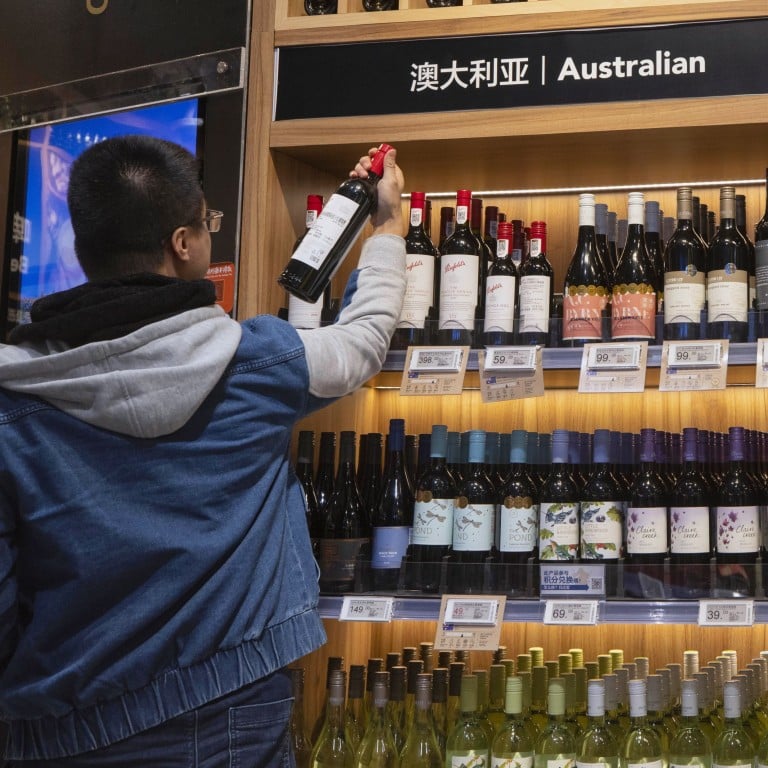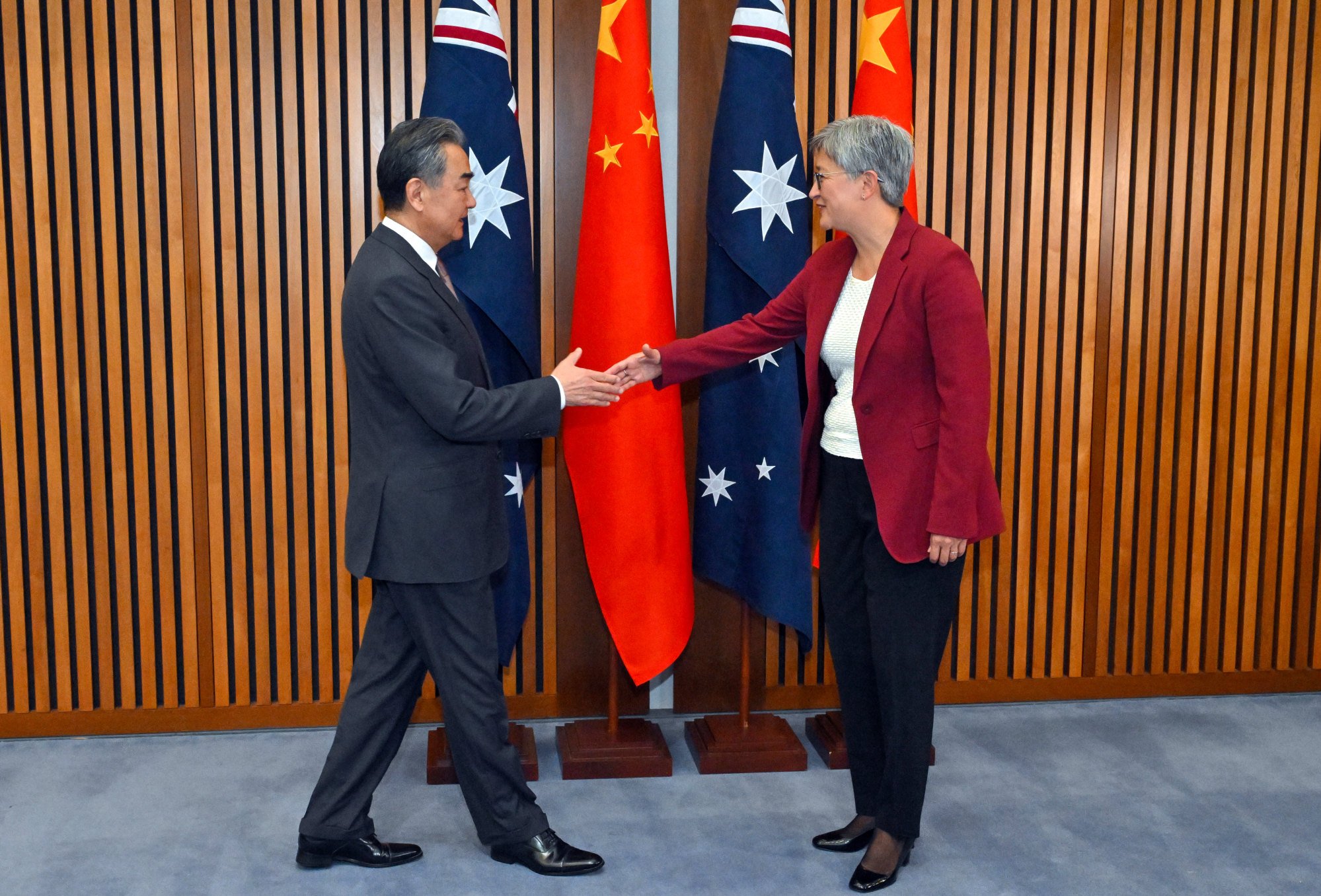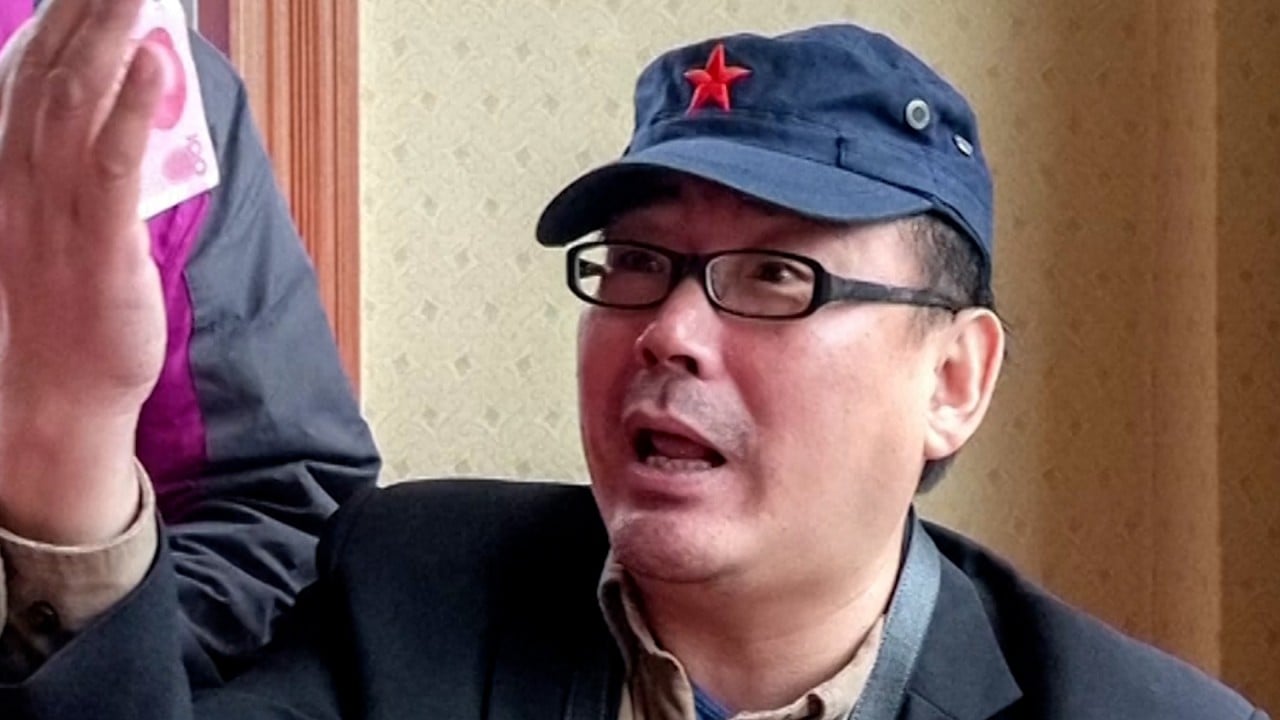
Chinese Premier Li Qiang to visit Australia as Canberra continues push to lift trade barriers
- China’s Foreign Minister Wang Yi told his Australian counterpart Penny Wong that tariffs on wine were currently under review when they met on Wednesday
- Wong said she was pushing for more trade curbs to be lifted, but warned ‘important differences’ on issues such as Taiwan and human rights still exist
Wang Yi, who is also China’s foreign policy chief, met his counterpart Penny Wong in the Australian capital on Wednesday as relations start to thaw following a series of disputes over trade and human rights.
“We should build on the good momentum of bilateral relations so far … to jointly build a more mature, stable and fruitful comprehensive strategic partnership,” Wang said.
“Since China-Australia relations are on the right track, we must not hesitate, deviate or turn back … This is in the common interest of the two peoples.”
He last visited in 2017, and relations have since deteriorated over Canberra’s decision to ban Huawei from its 5G network and push for a World Health Organization inquiry into the origin of the Covid-19 pandemic.
In response, China, Australia’s biggest trade partner, imposed punitive tariffs or outright bans on a wide range of Australian products, including barley, wine, beef and lobsters in 2020.
It has also started reviewing tariffs on Australian wine, and the outcome should be known by the end of the month, Wang said during the meeting.

No additional barrier removals were announced immediately following the meeting, but Wong said she hoped that tariffs on beef and a ban on lobster imports would be lifted soon and welcomed the removal of previous trade restrictions.
She also announced the planned visit by Li, saying both countries will work together to prepare for his visit.
But she said stabilising relations is an “ongoing work” and noted “important differences” exist on issues such as Taiwan, the South China Sea and human rights in Xinjiang, Tibet and Hong Kong.
“Obviously, these topics underline that we do have important differences. Dialogue enables us to manage our differences. It doesn’t eliminate them,” she said.
“But this government, in the interest of Australians, will always seek to manage those differences wisely.”

Meanwhile, Canberra has also agreed to boost cooperation on maritime security with the Philippines, where the long-running territorial dispute between Beijing and Manila in the South China Sea has escalated in recent months.
Wang met business and industry representatives after the meeting, promising that China’s market would remain “wide-open” to investors.
Separately, China’s Minister of Public Security Wang Xiaohong met Australian Federal Police Commissioner Reece Kershaw on Tuesday and pledged to “jointly open a new chapter in China-Australia law enforcement cooperation”.
Kershaw is in China to sign three joint arrangements focused on countering narcotics trafficking and transnational crime in China, according to a statement by the Australian police.

 - Kawala Xie.jpg?itok=NogZcyZ-&v=1661304068)
